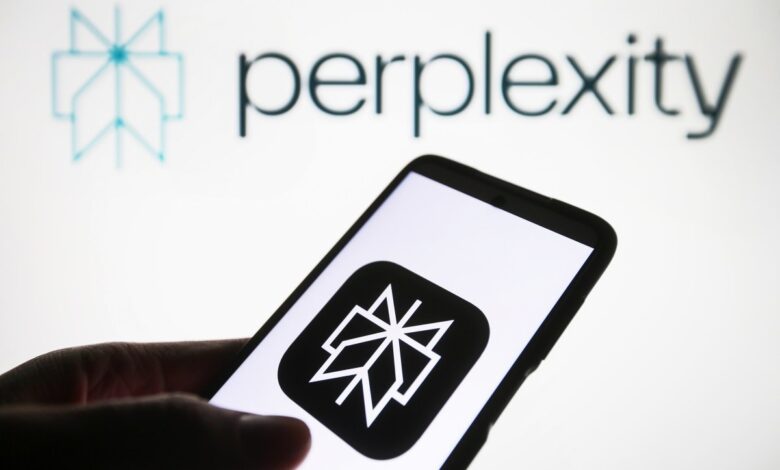Perplexity expands its publisher program

Perplexity, the AI-powered search engine, is expanding its reach editor programwith the LA Times, Adweek, Mexico News Daily and a dozen other news outlets signing up. Publishers will share in the revenue generated by ads on Perplexity and receive metrics to track the performance of their content, as long as they are not removed.
“We couldn’t provide objective and valuable answers without news organizations continuing to report on different topics,” Jessica Chan, director of editorial partnerships at Perplexity, said in a statement. “We are excited to welcome these new editors to the program.”
Spanish-language media brand Pris Media, newspaper conglomerate Lee Enterprises and The Independent are among the dozen publishers set to join. Other new members include Blavity, NewsPicks, Minkabu Infonoid, Gear Patrol, MediaLab, DPReview, World History Encyclopedia, and RTL Germany’s NTV and Stern brands.
It is unclear to what extent these publishers informed their staff about the partnerships before they were publicly revealed. An LA Times source told TechCrunch that journalists were not informed about the Perplexity deal, or only heard references to it in passing, and that the editorial department was not given the opportunity to express its opinions to leaders.
An Adweek source said some of its staff were also not informed or given a say. A journalist learned of the agreement through a press release.
“(Everyone) is perplexed. “That’s truly the best word to describe it,” the LA Times source said. “I don’t think anyone has enough information to be positive or negative about it. Some people had not heard of Perplexity, so there is really a lack of information to have a position on it. But I’m sure everyone will have ideas once we know more.”
Notably absent from the new cohort is The New York Times, which in October sent Perplexity a cease and desist letter demanding the startup to stop accessing your articles without permission. Dow Jones, which runs the Wall Street Journal and other news services, and The NY Post have also not joined the Perplexity program: they are suing the company for what they have described as a “content kleptocracy.”
Perplexity has a complicated relationship with publishers. Its search engine uses AI to synthesize and summarize content, including news, from across the web. But the way Perplexity presents these summaries (and the company’s data collection tactics) remain points of contention.

This summer, Forbes accused Perplexity for plagiarizing his paid content and subsequently threatened the company with legal action. Around the same time, Wired published a piece which found that the Perplexity platform was paraphrasing its own stories, sometimes inaccurately.
According CopyleaksA company that creates technology to detect AI-generated text, Perplexity was rounding up at least some paid news in late October.
in a blog post In response to Dow Jones’ lawsuit, Perplexity argued that publishers wish their technology “did not exist” and would prefer that “publicly reported facts be owned by corporations.” But the publication avoided addressing whether Perplexity regurgitates content on a massive scale, as some allege, and then competes with the publishers of that content for the same audience.
Perplexity claims to cite its sources, which it does. The quotes are sometimes wronghowever.
In a move that probably won’t foster much goodwill among publishers, Perplexity is locking down the details of the terms of its program. This summer, the company said The Verge that the agreements were “multi-year” with a “double-digit” percentage and that payments would be made for each item Perplexity delivered to users. But when TechCrunch asked about the terms this week, a spokesperson said Perplexity was “not sharing financial details.”
It could be that Perplexity is wary of making the terms public: publishers could use them as leverage in negotiations with their competitors. In October, OpenAI was launched ChatGPT Searcha rival AI-powered search tool, along with its own publishing partners such as The Atlantic, News Corp. and Vox Media.
Unlike Perplexity’s publisher program, OpenAI allows publishers to manage how their content appears in search results. Perplexity previously said it was working on content controls, but did not provide any updates on progress this morning.
As Perplexity’s program expands, the startup may face increased pressure from investors to recoup costs. Perplexity is said to be raising $500 million in a deal that would value it at $9 billion. But its annual recurring revenue was about $50 million in October, according to the Wall Street Journal. reported.
Perplexity co-founder and CEO Aravind Srinivas seems optimistic. in a mail on X on Wednesday, said Perplexity now handles about 20 million queries a day, up from 2.5 million a day at the beginning of the year.
Personal opinion:
“Expanding Perplexity to its publisher program is a smart move to expand content reach into new markets. With this move, Perplexity could provide significant opportunities for publishers to increase their reach to a wider audience and generate additional revenue. If this expansion is executed wisely and thoughtfully, the program could become a powerful tool to support content and drive engagement on a larger scale.”
